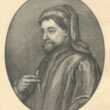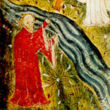Beowulf: a new translation
Description
Named one of the Best Poetry Books of 2021 by The GuardianLonglisted for the 2021 National Translation Award in Poetry. Picked for Kirkus Reviews’ Best Fiction in Translation of 2020. Named a Book of the Year by NPR, Vox, and The New Statesman. Picked for Loyalty Books’ Holiday List. A new, feminist translation of Beowulf by the author of the much-buzzed-about novel The Mere Wife"Brash and belligerent, lunatic and invigorating, with passages of sublime poetry punctuated by obscenities and social-media shorthand." —Ruth Franklin, The New Yorker"The author of the crazy-cool Beowulf-inspired novel The Mere Wife tackles the Old English epic poem with a fierce new feminist translation that radically recontextualizes the tale." —Barbara VanDenburgh, USA TodayNearly twenty years after Seamus Heaney’s translation of Beowulf—and fifty years after the translation that continues to torment high-school students around the world—there is a radical new verse translation of the epic poem by Maria Dahvana Headley, which brings to light elements that have never before been translated into English, recontextualizing the binary narrative of monsters and heroes into a tale in which the two categories often entwine, justice is rarely served, and dragons live among us. A man seeks to prove himself as a hero. A monster seeks silence in his territory. A warrior seeks to avenge her murdered son. A dragon ends it all. The familiar elements of the epic poem are seen with a novelist’s eye toward gender, genre, and history—Beowulf has always been a tale of entitlement and encroachment, powerful men seeking to become more powerful, and one woman seeking justice for her child, but this version brings new context to an old story. While crafting her contemporary adaptation of Beowulf, Headley unearthed significant shifts lost over centuries of translation.
More Details
9781250232175
Similar Titles From NoveList
Published Reviews
Kirkus Book Review
An iconic work of early English literature comes in for up-to-the-minute treatment. In her novel The Mere Wife (2018), Headley imagined Grendel's mother as a PTSD--haunted Iraq War veteran guarding her son from the encroachment of suburban civilization on their wilderness home. Telling that tale, she recounts in the introduction here, put her closely in touch with the original and with a woman who "had a ferocious look and seemed to give precisely zero fucks." From the very opening of the poem--"Bro!" in the place of the sturdy Saxon exhortation "Hwaet"--you know this isn't your grandpappy's version of Beowulf. Headley continues, putting her own spin on the hemistiches and internal rhymes of the original: "Tell me we still know how to talk about kings! In the old days, / everyone knew what men were: brave, bold, glory-bound. Only / stories now, but I'll sound the Spear-Danes' song, hoarded for hungry times." Grendel, she has it, was a "woe-walker, / unlucky, fucked by Fate." The language may keep Headley's version from high school curricula, but the sentiment is exactly right: Grendel is an outcast and monster through no fault of his own while the men who array themselves against him are concerned with attaining fame and keeping the reputation of being good for eternity while having a nice flagon of mead at the end of a day of hacking away. Headley's language and pacing keep perfect track with the events she describes, as when a fire-breathing dragon visits the warriors' hall: "Soon Beowulf received a blistering missive. / His own hall, his heart-home, had combusted. / He'd been ghost-throned by the skyborn gold-holder." "Ghost-throned" is a wonderful neologism, and if phrases like "Everybody's gotta learn sometime" and "His guys tried" seem a touch too contemporary, they give the 3,182-line text immediacy without surrendering a bit of its grand poetry. Some purists may object to the small liberties Headley has taken with the text, but her version is altogether brilliant. Copyright (c) Kirkus Reviews, used with permission.

































